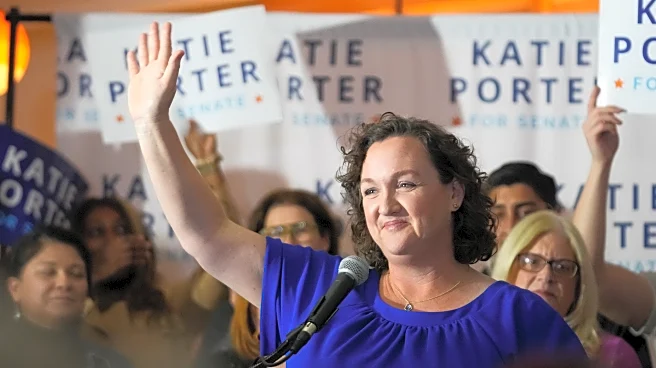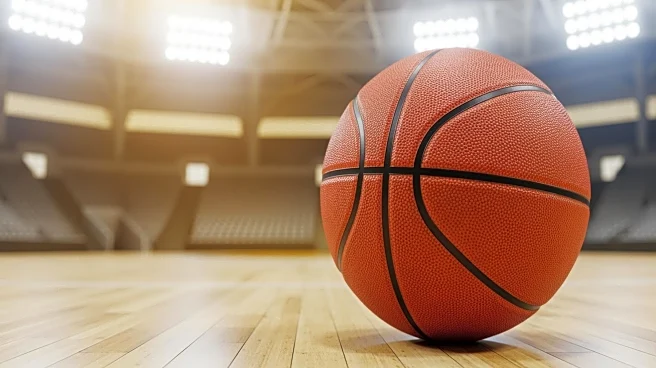What's Happening?
Carlos Rodon, a left-handed pitcher for the New York Yankees, is expected to miss the start of the 2026 MLB season following an arthroscopic surgery on his left elbow. The procedure, performed by Dr. Neal ElAttrache, aimed to clean up loose bodies and shave
down a bone spur in the elbow. Yankees manager Aaron Boone announced the surgery at his end-of-season press conference, indicating that Rodon will likely be delayed by a couple of weeks at the beginning of the season. Rodon, who is 32 years old, had a standout season with the Yankees, achieving an 18-9 record, a 3.09 ERA, and 203 strikeouts in 33 starts. He also earned his third career All-Star nod, marking his first as a Yankee.
Why It's Important?
Rodon's surgery and subsequent delay in starting the 2026 season could impact the Yankees' pitching rotation and overall team performance. As a key player, Rodon's absence might necessitate adjustments in the team's strategy and lineup. His successful 2025 season contributed significantly to the Yankees' performance, and his delayed return could affect the team's competitiveness in the early part of the season. Additionally, Rodon's health and recovery will be closely monitored, as he has three years remaining on a six-year, $162 million contract, making his performance crucial to the team's long-term plans.
What's Next?
The Yankees will need to plan for Rodon's absence by potentially adjusting their pitching rotation and considering alternative strategies to maintain their competitive edge. The team may explore options such as promoting other pitchers or acquiring new talent to fill the gap left by Rodon. As the 2026 season approaches, the Yankees will likely provide updates on Rodon's recovery progress and expected return timeline. Fans and analysts will be watching closely to see how the team adapts to this challenge and how Rodon's recovery unfolds.
Beyond the Headlines
Rodon's surgery highlights the physical demands and health risks associated with professional sports, particularly for pitchers who often face elbow and shoulder issues. The decision to undergo surgery reflects the importance of long-term health and performance sustainability for athletes. This situation also underscores the financial implications for teams investing heavily in player contracts, as injuries can affect both immediate performance and future planning.















